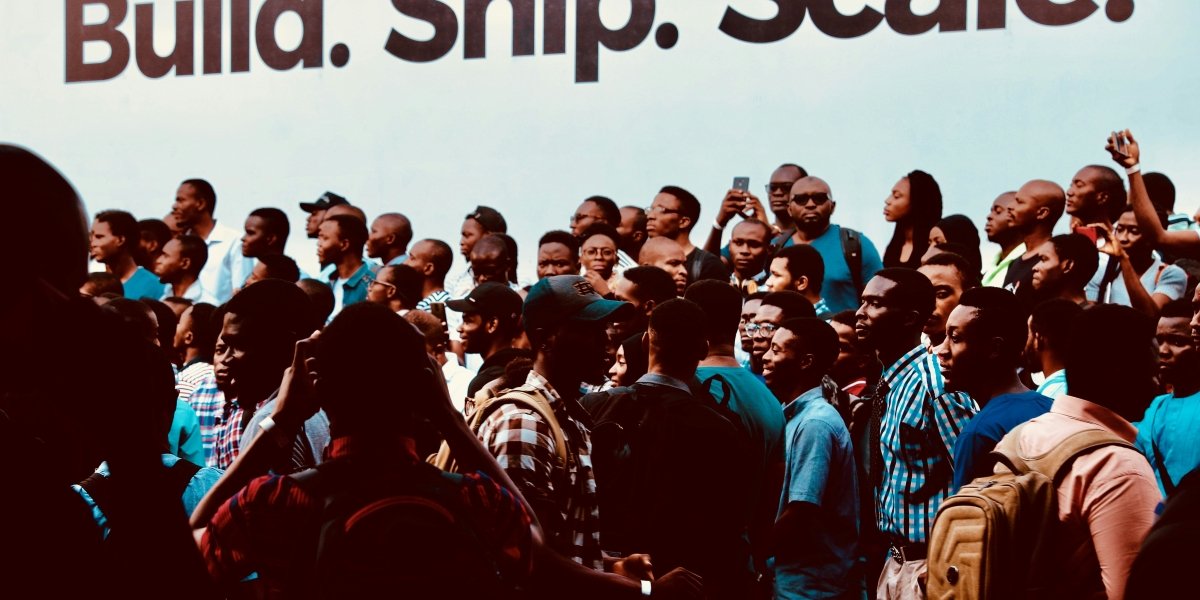Inflation is a critical economic issue affecting communities across the United States, but its impact on Black voters is particularly significant. Rising prices on everyday necessities, stagnant wages, and economic inequality have exacerbated financial challenges for many in the Black community. As inflation continues to climb, Black voters are increasingly prioritizing economic relief policies, shaping their political preferences and engagement. This article explores the primary concerns related to inflation among Black voters, focusing on its impact on household budgets, housing costs, wage stagnation, healthcare affordability, and more.
Impact on Household Budgets
For many Black households, inflation represents an ongoing struggle to manage day-to-day expenses. As the costs of goods and services rise, the pressure on household budgets becomes more severe, particularly for low-income families who already operate on thin financial margins.
Challenges in Budgeting
Inflation affects everything from groceries to utility bills, and Black voters, many of whom face economic vulnerabilities due to systemic inequalities, are disproportionately impacted. The strain on household budgets is especially severe when wages fail to keep pace with rising costs, leading families to make difficult decisions about how to allocate limited resources. Families may have to cut back on discretionary spending, reduce savings, or, in more extreme cases, forego essential services such as healthcare or transportation.
Rising Costs of Food and Housing
The rising costs of food and housing are two of the most pressing concerns for Black voters in the face of inflation. These essentials form a significant portion of most household budgets, and even small price increases can have a substantial effect on financial stability.
Housing Affordability Crisis
In many urban areas where Black communities are concentrated, housing costs have soared. Gentrification and the rising demand for housing have led to higher rents and property prices, displacing long-time residents and worsening housing insecurity. For Black voters, the affordability crisis has made homeownership increasingly out of reach, while those who rent are spending a larger share of their income on housing.
Food Insecurity
Inflation has also driven up the price of food, further straining household budgets. Black families are more likely to experience food insecurity than other racial or ethnic groups, and rising grocery prices exacerbate this issue. As the cost of staples such as meat, dairy, and produce rises, more families are forced to rely on cheaper, less nutritious food options, which can negatively affect health outcomes in the long term.
Wage Stagnation
Another critical issue for Black voters in the context of inflation is wage stagnation. While prices for goods and services have steadily increased, wages have remained relatively stagnant, failing to keep up with the rising cost of living.
Disparities in Earnings
Systemic issues in the labor market have long contributed to the wage gap between Black workers and their white counterparts. This disparity is particularly problematic in times of high inflation, as Black workers have less financial cushion to absorb rising prices. Many Black workers are employed in sectors with lower wages, and even those who hold higher-paying jobs often face barriers to salary increases that match inflation.
Advocacy for Living Wages
In response to these challenges, many Black voters and community leaders are advocating for policies that raise the minimum wage and ensure that wages are indexed to inflation. A living wage is seen as a necessary step to ensure that workers can meet their basic needs, even in periods of economic instability.
Healthcare Affordability
Healthcare affordability is a key concern for Black voters, particularly in the context of rising inflation. Healthcare costs have steadily increased over the years, and inflation only exacerbates the challenges that Black communities face in accessing affordable care.
High Costs of Care
Many Black families already struggle to afford health insurance and medical treatment, and inflation adds to these burdens. Rising healthcare premiums, copays, and prescription drug prices further strain household finances, forcing some individuals to delay or skip necessary medical care. The combination of higher costs and limited access to care has far-reaching consequences for health outcomes, particularly in communities that are already disproportionately affected by chronic illnesses like diabetes and hypertension.
Policy Solutions for Healthcare
As healthcare costs rise, Black voters are increasingly demanding policy solutions that address affordability. Calls for expanded access to public healthcare programs like Medicaid, as well as broader healthcare reform efforts, reflect the growing concern among Black voters about the sustainability of the current system.
Political Priorities and Voting Behavior
Inflation is not just an economic issue; it also influences the political priorities and voting behavior of Black voters. As the financial strain on households grows, economic relief policies have moved to the forefront of political discussions within the Black community.
Economic Policy Preferences
Black voters are more likely to support policies that address income inequality, expand access to affordable housing, and provide economic relief for struggling families. Candidates and political parties that prioritize these issues are likely to gain support from Black voters, particularly those advocating for direct interventions such as stimulus payments, affordable healthcare reforms, and rent control measures.
Impact on Elections
As inflation continues to rise, it could have a significant impact on upcoming elections. Black voters, who often play a decisive role in key battleground states, are likely to prioritize economic issues when casting their ballots. Candidates who acknowledge the unique economic challenges faced by Black communities and propose meaningful solutions are expected to gain traction.
Historical Economic Inequality
The current inflationary pressures on Black voters cannot be separated from the long-standing issue of historical economic inequality. Black communities in the United States have faced systemic barriers to wealth accumulation for generations, including discriminatory housing policies, unequal access to education, and employment discrimination.
Generational Wealth Disparities
As a result, Black families have less generational wealth compared to their white counterparts, making them more vulnerable to economic shocks like inflation. The inability to build intergenerational wealth means that many Black families have fewer financial resources to fall back on during periods of rising prices.
Addressing the Wealth Gap
Efforts to address the racial wealth gap are becoming more prominent in political discussions. Policy proposals such as reparations, increased investment in Black-owned businesses, and targeted financial literacy programs aim to reduce the economic disparities that have long affected Black communities.
Student Loan Debt Burden
Another issue exacerbating the financial pressures on Black voters during times of inflation is the burden of student loan debt. Black students are more likely to take on significant student loans to finance their education, and they often face higher interest rates and longer repayment periods than their white peers.
Inflation’s Impact on Debt
As inflation rises, the burden of student loan repayment becomes even more difficult to manage. Black voters are advocating for student loan forgiveness programs and more equitable access to higher education financing as a way to relieve some of the financial pressures they face.
Community Support and Advocacy
In response to the challenges posed by inflation, community support and advocacy have become crucial tools for Black voters. Grassroots organizations, nonprofits, and advocacy groups are stepping in to provide resources, education, and financial assistance to those most affected by inflation.
Advocacy for Policy Change
Many of these organizations are also advocating for broader policy changes that address the root causes of economic inequality. By amplifying the voices of Black voters and pushing for systemic reform, these groups play an essential role in shaping the national conversation about inflation and its impact on marginalized communities.
The inflation concern among Black voters is a multifaceted issue, deeply rooted in historical economic inequality and compounded by rising costs in essential areas like housing, food, healthcare, and education. As inflation continues to rise, Black voters are increasingly prioritizing policies that address wage stagnation, economic relief, and healthcare affordability. In the coming years, inflation will remain a central issue shaping the political engagement and policy preferences of Black voters, making it a key factor in the broader economic and political landscape.








